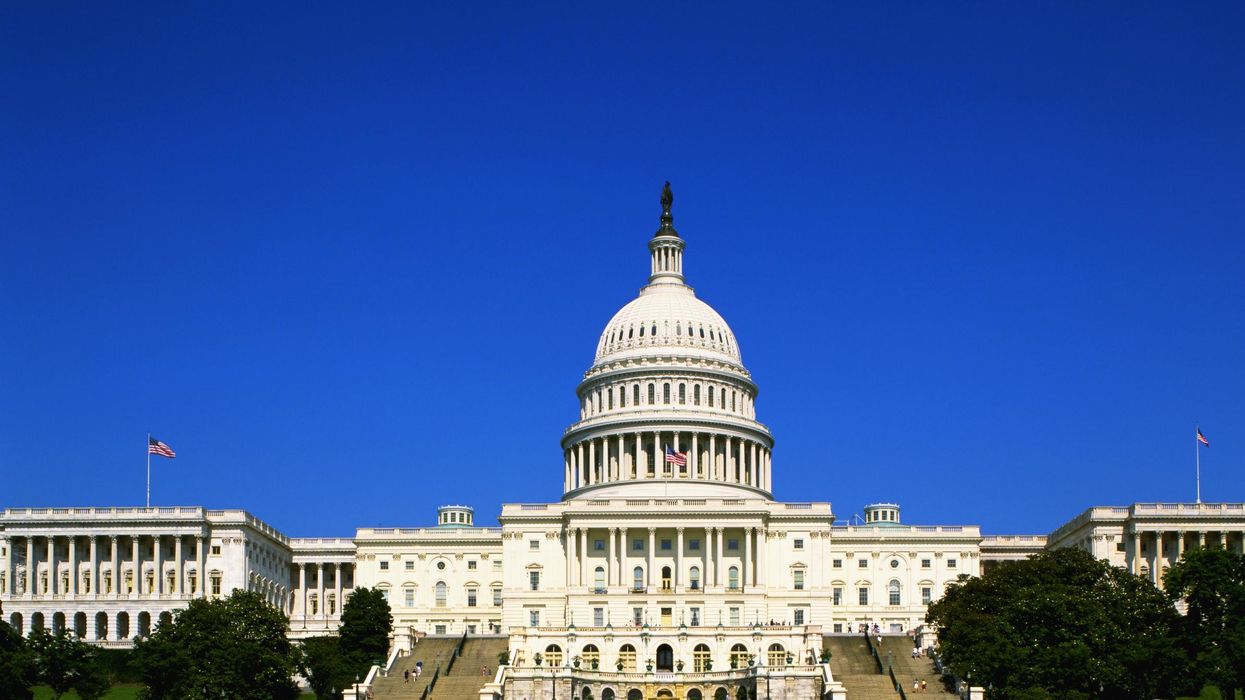As 2022 draws to a close, The Fulcrum has invited leaders of democracy reform organizations to share their hopes and plans for the coming year. This is the second in the series.
Fitch is the president and CEO of the Congressional Management Foundation and a former congressional staffer.
It’s that time of year when one reflects on the joys and disappointments of the past year and looks to the hopes and plans for 2023. The Congressional Management Foundation is the only nonpartisan, nonprofit in the United States with 100 percent of its staff and resources dedicated to improving Congress and its interactions with constituents, so naturally our end-of-year analyses and wishes are focused on the legislative branch.
While it’s been hard to see, the House of Representatives has seen some remarkable achievements in the past few years, primarily through the work of the Select Committee on the Modernization of Congress. I know most of the people will find this hard to believe, but the committee was one of the few groups in Congress I’ve witnessed in my years at CMF that functioned the way our Founding Fathers intended. During the four years of the committee’s existence this bipartisan group of lawmakers discussed, debated and adopted more than 200 recommendations to improve Congress and democracy – nearly all with unanimous support from both the Democrats and Republicans on the committee.
It may sound mundane, but the committee’s recommendations, if fully implemented, would strengthen Congress’ ability to retain competent staff, enhance the resources to develop sound public policy, enable more efficient processes for the Congress to operate and improve Congress’ ability to listen to the American people. They will also restore some of the powers granted to Congress in Article I of the Constitution, including shifting some spending authority from the executive branch back to the legislative branch, as the country’s founders intended. Their recommendations will strengthen Congress, allow constituents to have a greater voice in government, and lead to better service to and representation of the American people.
In our four decades of working with Congress, CMF has rarely seen a group of legislators so astutely assess a public policy need, analyze the implications, and chart a course that benefits both the institution and the constituents it serves. This effort was aided by a remarkable coalition of about 40 organizations that rallied around the common purpose of enhancing Congress. When I started work at CMF two decades ago there were so few groups focused on Congress that we probably couldn’t put together a poker game. Well, now we’ve got a whole softball league filled with reformers! Groups and initiatives such as the Hewlett Foundation’s Democracy Program, the Democracy Fund, and the Bridge Alliance have become hubs of democratic ingenuity and support. [Bridge Alliance operates The Fulcrum.]
To continue to support this effort, this month CMF announced it was launching a new Congressional Revitalization and Modernization Project. The initiative aims to assist in the implementation of the committee’s recommendations in the House and support efforts to launch a similar initiative in the Senate. Part of this effort also will include CMF continuing to identify key benchmarks for improving Congress as an institution. In collaboration with the Partnership for Public Service, CMF published “The State of the Congress 2022, ” which revealed bipartisan agreement that congressional functionality, civility, and capacity need to improve for Congress to best perform its role in democracy. This first annual report provides an assessment of congressional performance by the people who know the institution best: congressional staff. We created the Exemplary Congressional Staff Cohort composed of more than 100 of the best staff working in personal, committee, leadership and institutional offices throughout the Legislative Branch.
As we look to 2023, CMF will also continue its work with our academic partners to enhance trust in Congress through better constituent engagement. We will continue our partnership with the Institute for Democratic Engagement and Accountability at The Ohio State University to conduct novel online/telephone town hall meetings with members of Congress and constituents. Our goal will be to explore whether these modern and scalable settings can be used to bridge the divide in a highly partisan environment.
Finally, if I could foist a few New Year’s resolutions on key institutions, I would urge some important participants in our democracy to change a bit of their culture in ways that improve trust in our system of government. For the media, I would hope that the genuine bipartisan accomplishments that occur get greater attention. During this past Congress we saw bipartisan agreement on improving our national infrastructure, incentivizing the manufacturing of microchips in the United States, and supporting democracy in Ukraine in its war with Russia.
For Congress, it would be nice if it spent more time acknowledging the progress and success the institution has achieved, and less time unfairly beating itself up. I’m not taking a Pollyanna approach; I fully recognize that Congress needs to improve how it functions. But Coke doesn’t employ advertising slogans like, “Don’t drink Pepsi, it’ll rot your teeth.” Sure, Congress has its share of whack-a-doodles, scoundrels, and incompetents – just like any profession. Yet most of the Congress is composed of dedicated public servants striving tirelessly to improve the lives of their constituents and make the world a better place. Nearly all members of Congress genuinely believe this – it would be nice if in 2023 they articulated it a little more often.




















Trump & Hegseth gave Mark Kelly a huge 2028 gift